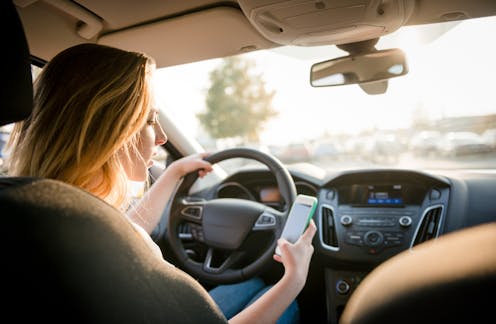Police location sites on Facebook are helping drivers avoid detection for drug driving
- Written by Laura Mills, PhD Candidate, University of the Sunshine Coast

The internet allows us to check the surf, the news, traffic on the road, what our friends have been up to – all before getting out of bed. While this has made several aspects of life easier, it can also come at a cost.
The last decade has seen a growing number of Facebook groups and pages dedicated to revealing the locations of police traffic operations.
These Facebook communities rely on users to alert the group or page when they drive past a random breath testing or roadside drug testing operation, as well as speed and mobile phone cameras.
Our study, published recently in the journal Safety Science, aimed to find out more about how these sites were being used by a sample of 890 people who take drugs.
We found 25% of them reported using police location groups or pages on Facebook; of these people, 43% reported using the sites to avoid roadside drug testing operations (while others used the pages for other purposes, like traffic updates and avoiding speed cameras).
Our results suggest police location groups and pages on Facebook are helping drivers avoid detection for drug driving – a traffic offence recognised as contributing to 106 fatal injuries in 2019 in Australia.
Read more: Speeding drivers keep breaking the law even after fines and crashes: new research
What we did
With increases in drug-related traffic fatalities across Australia in the last decade, we chose to focus our study on drug driving behaviours, and investigate how people use Facebook police location groups and pages to avoid roadside drug testing operations.
Our study involved 890 Queensland motorists who reported consuming either marijuana, MDMA and/or methamphetamines in the past 12 months. These are the three drugs tested for on roadside drug tests across all Australian states.
Participants were recruited through Facebook and completed an online survey.
We found:
- 59% of the sample (521 participants) reported at least one instance of drug driving in the previous 12 months
- 25% of the sample (219 participants) reported using Facebook police location communities
- of these 219 participants, almost two-thirds (142 participants) were drug drivers, however only 43% (94 participants) reported using the police location information to avoid roadside drug testing
- other reasons for using these sites included for traffic updates, viewing locations of speed and mobile phone cameras and to avoid random breath testing sites.
How drivers use police location sites is important
How drivers use police location sites is more important than whether they use them or not. Some drivers use them to actively avoid roadside drug testing, while others use them for different reasons (such as for traffic updates or information on speed cameras).
We found those who use these police location Facebook sites aren’t engaging in drug driving any more than people who don’t use these sites at all. And both groups considered it unlikely they would be caught if they were to drug drive.
A difference was found, however, when we compared those who reported using police location communities to avoid roadside drug testing and those who used the sites for a different reason (such as traffic updates or speed camera location information).
Those who used the police location Facebook sites to avoid roadside drug testing:
- offended more in the past (75 drug driving events on average, compared to 31 drug driving events)
- reported being more likely to offend again in the future
- viewed the Facebook police location posts more frequently (“few times a week” vs “few times per month”) and
- were more likely to believe the posts were accurate and reliable (a score of 6.57 out of 10 vs 5.20 out of 10).
What does this mean for road safety?
This study provides the first steps in exploring the use of police location sites on Facebook in relation to drug driving.
While not all offenders use these sites, there is a small proportion of drug drivers who do use the sites to actively avoid being detected.
This suggests the use of police location sites is a problematic area that needs more research to see how to further prevent drug driving.
Overall, participants considered it “unlikely” they would be caught for drug driving, regardless of whether they used Facebook police location groups and pages or not.
This is a significant problem as a core component of deterrence theory requires that for the legal punishment to effectively deter people, they need to believe the chance of being caught to be high.
Regardless of police location pages, there remains a fundamental need to increase motorists’ perceptions of being caught for drug driving.
This may be achieved through increasing awareness of drug testing operations when they are occurring on the roadside.
A recent study by the same research team found even just driving past a roadside drug testing operation two or more times within a year increased perceptions of being caught for drug driving.
Many motorists, however, are not aware that roadside drug testing often occurs alongside random breath testing.
Increasing roadside drug testing related signage during active operations may prove to be an important ingredient for enhancing the impact of roadside operations.
Taken together, while police location pages may prove to be a cause for concern, motorists’ already low estimations of being caught should not be overlooked.
Read more: A new approach to cut death toll of young people in road accidents
Authors: Laura Mills, PhD Candidate, University of the Sunshine Coast





